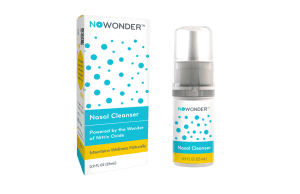 An announcement on the National Institutes of Health website in 2023 revealed some interesting results from a study on the benefits of taking probiotics, which are digestive supplements containing live microorganisms, as a way to complement or replace antibiotics.
An announcement on the National Institutes of Health website in 2023 revealed some interesting results from a study on the benefits of taking probiotics, which are digestive supplements containing live microorganisms, as a way to complement or replace antibiotics.
In the study, the probiotic Bacillus was found to be especially promising because it is administered orally and has been shown to have a strong effect on the levels of methicillin-resistant Staphylococcus Aureus (MRSA), which can cause serious infections in the skin, bones, lungs, and blood. In a parallel study of healthy men who were either taking Bacillus probiotics or a placebo, researchers found that after four weeks, no changes were observed in the control group. However, in the group taking probiotics, they observed a 96% reduction in Staphylococcus Aureus in the stool and a 65% reduction in the nose.
What are probiotics?
Probiotics are live microorganisms that have health benefits when taken at recommended amounts. Probiotics are similar to the beneficial microorganisms found in the human gut. They can be taken as supplements or found in fermented foods like yogurt and sauerkraut. When consumed in sufficient amounts, probiotics can help promote a healthy balance of gut bacteria, which can positively impact overall health.
Some potential benefits of probiotics include improved digestion, stronger immune function, and a reduced risk of certain diseases.
Many fermented foods contain probiotics and can promote good health. Some examples include:
- Kimchi: a traditional Korean dish made of fermented vegetables, typically cabbage, and spices.
- Kombucha: a fermented tea that contains a symbiotic culture of bacteria and yeast.
- Miso: a traditional Japanese condiment made from fermented soybeans.
- Tempeh: a traditional Indonesian food made from fermented soybeans.
- Sourdough bread: made by fermenting dough using naturally occurring lactobacilli and yeasts.
- Some types of pickles and pickled vegetables
Not all fermented foods contain probiotics. The fermentation process itself does not necessarily mean it contains probiotics. Additionally, the probiotic strains found in fermented foods may vary from those in supplements. The levels of live microorganisms can also vary depending on the specific food and how it was produced.
It is possible to get the benefits of probiotics from fermented foods. However, it can be difficult to know how much probiotics you are actually getting, as the levels can vary depending on the specific food and how it was produced. Additionally, you may be unable to consume certain fermented foods due to dietary restrictions or personal preferences.
What is Bacillus?
Bacillus is a genus of gram-positive, rod-shaped bacteria found in various environments, including soil, water, and the human gut. Some species of Bacillus are known to produce spores, which are highly resistant to environmental stress and can survive for long periods in a dormant state. Because of their ability to form spores, Bacillus bacteria are commonly used in the production of fermented foods and as probiotics.
Some species of Bacillus have been identified as potential probiotics, including Bacillus subtilis and Bacillus coagulans. These strains have been shown to have a positive impact on gut health by improving digestion, reducing inflammation, and strengthening the immune system.
Bacillus subtilis has been found to be effective in reducing diarrhea, constipation and bloating. It has also been shown to have a positive impact on mental health by reducing anxiety and depression symptoms.
Bacillus coagulans is a bacteria that is known to produce lactic acid and bacteriocins that can inhibit the growth of harmful bacteria in the gut. It has been found to be effective in reducing the symptoms of Irritable Bowel Syndrome (IBS) and Crohn’s Disease, two forms of Inflammatory Bowel Disease (IBD).
It’s important to note that some species of Bacillus can also be pathogenic, meaning they can cause disease, so it is important to use only strains that have been shown to be safe and effective as probiotics.
How can I improve my gut health?
Individuals with poor gut health resulting from a gastrointestinal condition should follow their doctor’s instructions, take prescribed medications as directed, and adhere to the recommended diet to help improve their gut health. The following are suggestions to improve overall gut health and probiotic levels naturally, but they may not be suitable for everyone.
Diet’s effect on gut health
Doctors often recommend changing diets to improve gut health. In general, following basic healthy eating guidelines can help. It is essential to incorporate a diverse range of plant-based foods, including vegetables, fruits, beans, legumes, and whole grains.
These foods are rich in essential vitamins, minerals, and nutrients necessary for optimal health. They also contain fiber, known as prebiotics, which cannot be digested but help support the growth of beneficial bacteria in the gut.
Fermented foods are great for supporting gut health. These foods are made when bacteria or yeast break down the sugars in them. They are rich in probiotics, which are helpful bacteria that promote a healthy digestive system. Examples of fermented foods include:
- Kimchi, which is a traditional Korean dish made of fermented vegetables, typically cabbage, and spices.
- Kombucha, a fermented tea that contains a symbiotic culture of bacteria and yeast.
- Miso, a traditional Japanese condiment made from fermented soybeans. Note that once it is cooked or heated, it may lose its probiotic potential as the bacteria in it will be destroyed.
- Tempeh, a traditional Indonesian food made from fermented soybeans.
- Some types of pickles and pickled vegetables such as sauerkraut
- Fermented dairy products such as yoghurt, kefir, and buttermilk. When choosing yoghurt, those labelled as ‘pot-set’ tend to have the highest concentration of probiotics.
Not all fermented foods contain probiotics. The fermentation process itself does not necessarily mean it contains probiotics. Additionally, the probiotic strains found in fermented foods may vary from those in supplements. The levels of live probiotics can also vary depending on the specific food and how it was produced.
Foods that are highly processed or contain excessive amounts of sugar, salt, and saturated fats can negatively impact gut health and should be limited.
Adding probiotics to your diet with supplements
Probiotic supplements can be an excellent way to ensure that you get a consistent and sufficient amount of probiotics. However, it is important to choose a high-quality supplement that has been tested for purity and potency and has been clinically tested and proven to be effective.
Some good options include:
- The Gut Pack
- Lactobacillus acidophilus
- Bifidobacterium bifidum
- Lactobacillus rhamnosus
- Bifidobacterium lactis
- Streptococcus thermophilus
It’s always a good idea to consult with a healthcare professional before starting any supplement. This is especially true if you have any underlying health conditions or are taking medications.
What are CFUs?
CFUs, or Colony Forming Units, represent the number of live, active bacteria in a single serving that have the potential to survive in the gut, multiply, and form colonies. Dosages vary depending on the product, but for children, they typically range from 1 to 10 billion CFUs per day, while adults may take between 3 and 50 billion CFUs daily. Some products may offer even higher amounts, depending on their purpose and formulation. Recommended doses are guided by the specific bacterial strains and supporting research.
How long should you be taking probiotics?
Probiotics can be taken daily for anywhere from two weeks to two months to fully recolonize the healthy bacteria in the large intestine. However, the duration depends on an individual’s health condition. For example, probiotics for antibiotic-associated diarrhea may show benefits within two to three days, while several weeks may be needed to improve digestive symptoms.
Do fermented foods provide the same benefits as supplements?
Cultured and fermented foods can be healthy, but they don’t have as many live microorganisms as probiotic supplements. Things like pasteurization, how long the food is stored, and storage conditions can lower the number of live microorganisms by the time you eat them. On top of that, stomach acid and digestive enzymes can reduce the amount of microorganisms from these foods even more.
Is taking probiotics safe for everyone?
Probiotics are generally considered safe for most individuals, but they are generally not recommended for anyone with a serious illness or compromised immune system.
What are prebiotics?
Prebiotics are parts of food that the body can’t digest, but they serve as food for probiotics. Eating prebiotics helps probiotics stay healthy and work more effectively by feeding them. Prebiotics are usually found in plant-based foods like fruits, vegetables, whole grains, beans, nuts, and seeds.
Should I be taking probiotics with antibiotics?
Antibiotics can kill both bad and good bacteria in the body. Taking probiotics while on antibiotics can help replace the good bacteria. It’s important to wait at least two hours before or after taking antibiotics to take the probiotic. To fully restore the balance of good bacteria, probiotics should also be taken for at least two weeks after finishing the antibiotics. This helps rebuild the microbiome and prevents harmful bacteria from taking over.
FAQs
How long does it take for probiotics to improve gut health?
The time it takes for probiotics to work can vary, depending on why you’re using them. Some people notice improvements in just a few days, while for others it may take several months. However, probiotics don’t work for everyone. Factors such as your age, health, diet, existing gut bacteria, and genetic makeup can all influence the effectiveness of these treatments.
The time it takes for probiotics to work can vary, depending on why you’re using them. Some people notice improvements in just a few days, while for others it may take several months. However, probiotics don’t work for everyone. Factors such as your age, health, diet, existing gut bacteria, and genetic makeup can all influence the effectiveness of these treatments.
Is there a downside to taking probiotics?
Probiotics offer numerous health benefits, but they can also cause side effects in some individuals. These side effects are usually mild and affect only a small number of individuals. However, for those with serious health conditions or weakened immune systems, complications could be more severe. It’s always a good idea to consult a healthcare professional before starting any probiotic supplements.
Probiotics offer numerous health benefits, but they can also cause side effects in some individuals. These side effects are usually mild and affect only a small number of individuals. However, for those with serious health conditions or weakened immune systems, complications could be more severe. It’s always a good idea to consult a healthcare professional before starting any probiotic supplements.
Should you take probiotics in the morning or at night?
When you take probiotics with breakfast, it helps them move from your stomach to your colon, where they can start to colonize. This works well because your bowels are more active when you’re up and moving. But probiotics can be taken at any time of day and still be effective. The most important part is consistency. Taking them daily, at a time that works best for you, will provide the most benefits.
When you take probiotics with breakfast, it helps them move from your stomach to your colon, where they can start to colonize. This works well because your bowels are more active when you’re up and moving. But probiotics can be taken at any time of day and still be effective. The most important part is consistency. Taking them daily, at a time that works best for you, will provide the most benefits.
Does Greek yogurt have probiotics?
Most yogurts contain probiotics, but the amount can vary. The types with the highest levels of probiotics are typically those that are packaged directly in the container in which they are sold.
Most yogurts contain probiotics, but the amount can vary. The types with the highest levels of probiotics are typically those that are packaged directly in the container in which they are sold.
What to avoid when taking probiotics?
It’s important to avoid taking probiotics with acidic foods like coffee, orange juice, pineapple, tomato juice, or tomato sauce. These foods can increase the acidity in your stomach, which may reduce the effectiveness of the probiotics. To get the most benefit, take your supplement after eating a meal that is more pH-neutral.
It’s important to avoid taking probiotics with acidic foods like coffee, orange juice, pineapple, tomato juice, or tomato sauce. These foods can increase the acidity in your stomach, which may reduce the effectiveness of the probiotics. To get the most benefit, take your supplement after eating a meal that is more pH-neutral.
Why don’t doctors prescribe probiotics with antibiotics?
Antibiotics are designed to kill harmful bacteria, but they can also wipe out the good bacteria in your gut, which may be why some doctors do not prescribe them with antibiotics, thinking that the antibiotic will kill the good bacteria anyway. However, certain types, such as Saccharomyces boulardii and Lactobacillus rhamnosus, can be taken at the same time as your antibiotic, while other strains, including Lactobacillus and Bacillus, are more effective when taken an hour or two before or after the antibiotic. It’s also a good idea to continue taking probiotics for at least two weeks after finishing your antibiotics to help your gut fully recover.
Antibiotics are designed to kill harmful bacteria, but they can also wipe out the good bacteria in your gut, which may be why some doctors do not prescribe them with antibiotics, thinking that the antibiotic will kill the good bacteria anyway. However, certain types, such as Saccharomyces boulardii and Lactobacillus rhamnosus, can be taken at the same time as your antibiotic, while other strains, including Lactobacillus and Bacillus, are more effective when taken an hour or two before or after the antibiotic. It’s also a good idea to continue taking probiotics for at least two weeks after finishing your antibiotics to help your gut fully recover.
Is honey a probiotic?
Honey contains non-digestible carbohydrates called oligosaccharides, which may have prebiotic benefits. Prebiotics are substances that help improve gut health by promoting the growth of beneficial bacteria in the gut microbiota. The gut microbiota plays a crucial role in overall health. Studies have shown that certain types of honey can reduce the presence of harmful bacteria, such as Salmonella, E. coli, and C. difficile, while promoting the growth of beneficial bacteria, including Lactobacillus and Bifidobacteria.
What is in probiotics?
Probiotics are made up of various microorganisms, mostly bacteria from the Lactobacillus and Bifidobacterium families. In addition to bacteria, some probiotics also contain yeast, such as Saccharomyces boulardii.
What are the maximum CFUs of probiotics that you can take in a day?
The amount of CFUs recommended each day can differ based on the individual and the product being used. For most people, the maximum daily dose is around 400 billion CFUs, depending on their health needs.
Should I keep my probiotic supplement in the fridge?
Some probiotics can be stored at room temperature because they are shelf-stable, while others need to be kept in the refrigerator to keep the microorganisms alive. However, refrigerated probiotics aren’t necessarily better than shelf-stable ones. To make sure your probiotics work properly, always follow the storage instructions on the label.
What are the side effects of taking probiotics?
When someone starts taking a probiotic supplement or consuming more probiotic-rich foods, they might experience mild side effects such as an upset stomach, diarrhea, gas, or bloating. These symptoms are typically caused by changes in the gut and usually subside after a few days as the body adjusts. For individuals with known sensitivities, such as reactions to certain ingredients or high-FODMAP prebiotics, it is important to select a probiotic designed for those with sensitive digestion.












